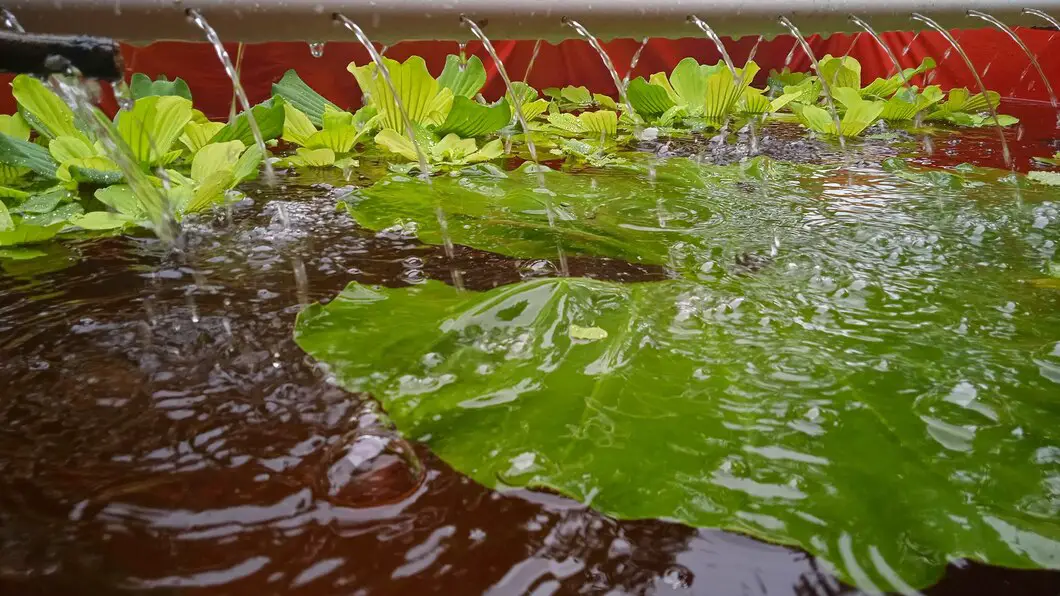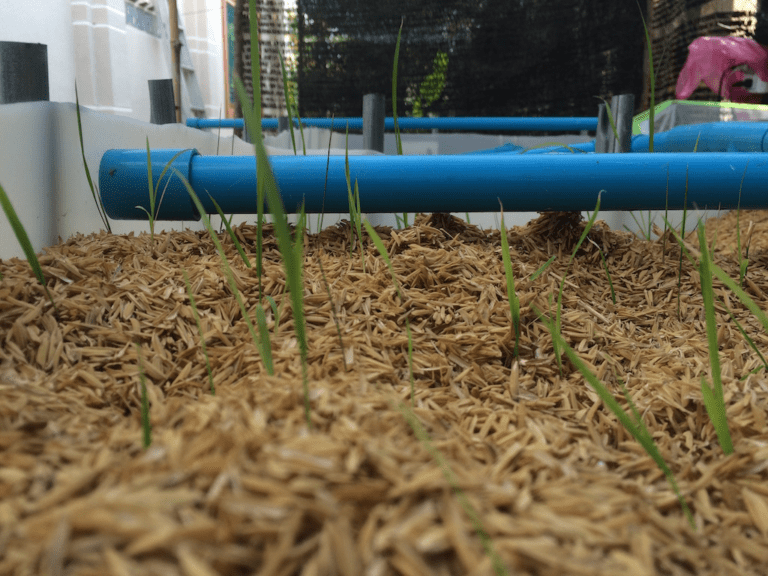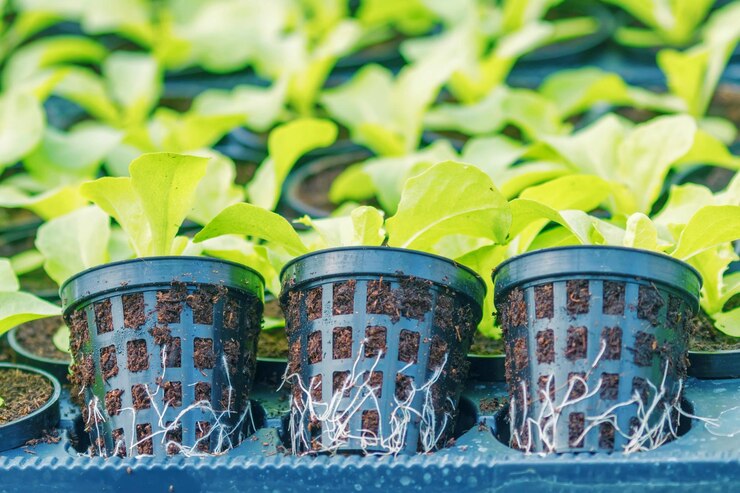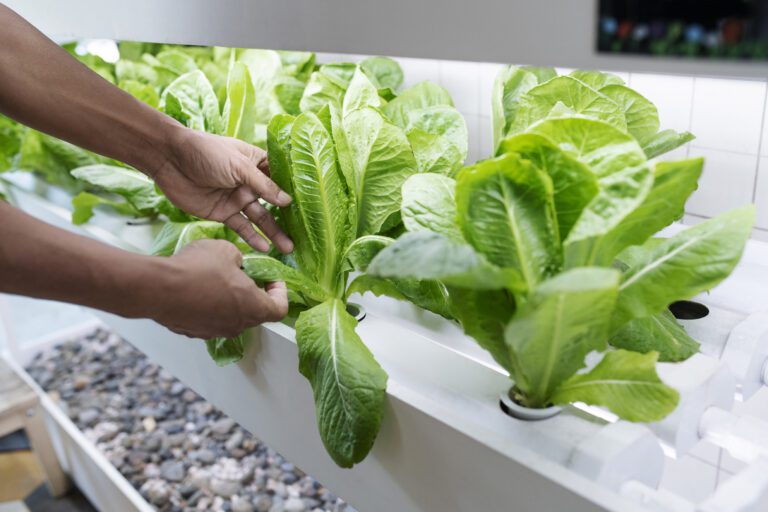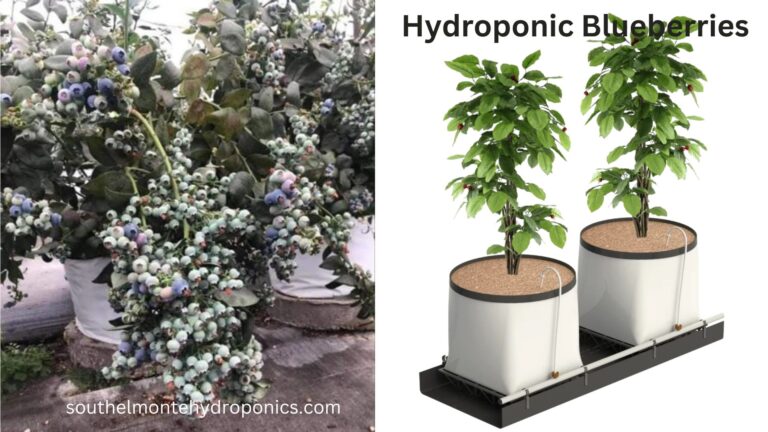RO Systems Unleashed: The Role of RO Water in Hydroponics
Table of Contents
The Importance of Water Quality in Hydroponic Systems
The success of any hydroponic system relies heavily on the quality of water used. Water quality plays a critical role in providing plants with the necessary nutrients and support for their growth and development. Poor water quality can have detrimental effects on plants, leading to nutrient deficiencies, disease susceptibility, and reduced yield.
One of the key aspects of water quality in hydroponic systems is purity. Contaminants such as chemicals, heavy metals, pathogens, and organic matter can significantly impact plant health and overall system performance. These impurities can disrupt nutrient uptake, clog irrigation lines, and create an environment conducive to the growth of harmful pathogens.
Additionally, the pH level of the water is critical for maintaining optimal nutrient availability and absorption. Deviations from the desired pH range can hinder nutrient uptake, leading to stunted growth and nutrient imbalances. By ensuring the water used in hydroponic systems is of high quality and has the correct pH level, gardeners can provide their plants with the best conditions for growth, ultimately maximizing yield and quality.
(reference: “Water Quality for Hydroponic Systems” by Howard M. Resh)
• Water quality is crucial for the success of hydroponic systems
• Poor water quality can lead to nutrient deficiencies, disease susceptibility, and reduced yield
• Purity is a key aspect of water quality in hydroponic systems
• Contaminants such as chemicals, heavy metals, pathogens, and organic matter can negatively impact plant health and system performance
• These impurities can disrupt nutrient uptake and create an environment conducive to harmful pathogen growth
• The pH level of the water is critical for optimal nutrient availability and absorption
• Deviations from the desired pH range can hinder nutrient uptake and lead to stunted growth and imbalances
in nutrients
Introducing Reverse Osmosis (RO) Systems
Reverse Osmosis (RO) systems are an essential component in hydroponic systems, playing a crucial role in ensuring the water quality is at its best. These systems are designed to remove impurities, contaminants, and unwanted substances from the water, providing a clean and pure source for nourishing plants in a controlled hydroponic environment. With the increasing popularity of hydroponics, understanding the benefits and workings of RO systems is vital for achieving optimal growth and yield in your plants.
RO systems work on the principle of selective membrane filtration, where water is forced through a semi-permeable membrane that only allows water molecules to pass through, while blocking larger particles and impurities. This process effectively removes dissolved solids, minerals, chemicals, bacteria, and other contaminants from the water, ensuring a clean and purified water source for your hydroponic system. By using RO water, you can significantly reduce the risk of nutrient imbalances, mineral build-up, and pH fluctuations that can hinder plant growth and health. Additionally, RO water provides a blank canvas for nutrient solutions, allowing precise control over the nutrient composition and balance, maximizing nutrient uptake by the plants.
• RO systems remove impurities, contaminants, and unwanted substances from water in hydroponic systems.
• They use selective membrane filtration to allow only water molecules to pass through while blocking larger particles and impurities.
• This process removes dissolved solids, minerals, chemicals, bacteria, and other contaminants from the water.
• Using RO water reduces the risk of nutrient imbalances, mineral build-up, and pH fluctuations that can hinder plant growth.
• RO water provides a blank canvas for nutrient solutions, allowing precise control over the nutrient composition and balance.
How Reverse Osmosis Works
Reverse osmosis (RO) is a widely-used water purification method that is highly effective in removing impurities from water. It works by applying pressure to force water molecules through a semi-permeable membrane, while leaving behind contaminants and dissolved solids. The membrane used in the RO system has extremely small pores that only allow water molecules to pass through, effectively blocking larger particles and substances.
Through this process, RO systems effectively remove various impurities such as chlorine, sediment, heavy metals, pesticides, and dissolved salts, among others. This results in clean, pure water that is especially beneficial for hydroponic systems. By providing a source of water that is free from contaminants, reverse osmosis helps to ensure optimal growth and health of plants, as well as improve overall system performance.
In addition to the membrane, RO systems also incorporate pre-filters and post-filters to enhance the purification process. Pre-filters remove larger particles and sediment, protecting the delicate membrane from damage or clogging. Post-filters are designed to further polish the purified water, improving its taste and eliminating any residual odors. The combination of these filtration stages ensures that the water entering the hydroponic system is of the highest quality, promoting optimal nutrient uptake and preventing issues such as clogged irrigation lines or mineral build-up.
• Reverse osmosis (RO) is a water purification method that removes impurities from water.
• RO works by applying pressure to force water molecules through a semi-permeable membrane, leaving behind contaminants and dissolved solids.
• The membrane used in the RO system has small pores that only allow water molecules to pass through, blocking larger particles and substances.
• RO systems effectively remove impurities such as chlorine, sediment, heavy metals, pesticides, and dissolved salts.
• Clean, pure water provided by reverse osmosis is beneficial for hydroponic systems as it ensures optimal growth and health of plants.
• Pre-filters in RO systems remove larger particles and sediment to protect the delicate membrane from damage or clogging.
• Post-filters further polish the purified water, improving its taste and eliminating residual odors.
• The combination of pre-filters, membranes, and post-filters guarantees high-quality water for hydroponic systems.
Advantages of Using RO Water in Hydroponics
One of the key advantages of using reverse osmosis (RO) water in hydroponics is its superior purity. RO systems effectively remove a wide range of impurities from the water, including minerals, chemicals, and microorganisms. This ensures that the plants receive only the purest water, free from any potential contaminants that could hinder their growth.
Additionally, RO water provides precise control over the nutrient solution in hydroponic systems. By starting with a clean slate, gardeners have the flexibility to tailor the nutrient mix to the specific needs of their plants. This allows for greater precision in adjusting the pH levels and nutrient concentrations, ultimately leading to optimized plant growth and yields.
Moreover, using RO water in hydroponics can help prevent the accumulation of harmful mineral deposits in the system. Tap water often contains high levels of minerals, such as calcium and magnesium, which can build up over time and cause blockages in irrigation lines or affect nutrient availability. By using RO water, these mineral deposits are minimized, reducing the risk of clogged systems and ensuring a consistent flow of water and nutrients to the plants.
In conclusion, the advantages of using RO water in hydroponics are clear: it offers exceptional purity, allows for precise control of the nutrient solution, and helps prevent mineral build-up. By harnessing the power of reverse osmosis, hydroponic gardeners can provide their plants with the ideal growing conditions, leading to healthier and more productive crops.
• RO water in hydroponics ensures superior purity by removing impurities such as minerals, chemicals, and microorganisms.
• Precise control over the nutrient solution is possible with RO water, allowing gardeners to tailor the mix to their plants’ specific needs.
• Using RO water helps prevent harmful mineral deposits from accumulating in the system, reducing the risk of blockages or nutrient availability issues.
• The advantages of using RO water in hydroponics include exceptional purity, precise nutrient control, and prevention of mineral build-up.
• By utilizing reverse osmosis technology, hydroponic gardeners can create optimal growing conditions for healthier and more productive crops.
Here’s a table summarizing the advantages of using Reverse Osmosis (RO) water in hydroponics:
| Advantage | Description |
|---|---|
| Contamination-Free Hydroponic System | RO water ensures that no contaminants, such as pesticides, heavy metals, or other toxins, enter your hydroponic system. It’s free from impurities commonly found in tap water, allowing your plants to thrive without harmful substances. |
| Automatic Dosing and pH Control | When using RO water, consider implementing an automatic dosing and pH control system. This ensures precise nutrient delivery to your plants, preventing excess or deficiency. |
| Mineral Control | RO water allows precise control over nutrient content, preventing mineral imbalances. You can customize nutrient solutions to meet your plants’ specific needs. |
| Elimination of Contaminants | RO systems remove impurities, ensuring that only pure water reaches your plants. This prevents system contamination and promotes optimal plant health. |
Using RO water in hydroponics is a wise choice for achieving optimal plant growth and health. Its purity, ability to customize nutrient solutions, and prevention of system contamination make it a valuable asset for hydroponic enthusiasts .
Removing Impurities: The Role of RO Systems in Hydroponics
RO systems play a critical role in hydroponics by removing impurities from water, ensuring optimal water quality for plant growth. The purity of water is essential in hydroponic systems because plants obtain all their nutrients from the water solution. Any impurities, such as minerals, chemicals, or pathogens, can negatively affect the plants’ health and growth.
RO systems use a process called reverse osmosis to filter out impurities from the water. This process involves forcing water through a semi-permeable membrane that only allows water molecules to pass through while blocking contaminants. As a result, RO water is highly pure, with most impurities and minerals removed. This purity provides a clean and balanced nutrient solution for hydroponic plants, reducing the risk of nutrient imbalances or mineral buildup in the system.
By using RO water in hydroponics, growers can ensure that their plants receive a consistent and clean water source, free from harmful substances. This purity not only promotes healthier plant growth but also minimizes the risk of diseases and pests that can be introduced through contaminated water. RO systems are a valuable tool for maintaining water quality in hydroponics, supporting the overall success and productivity of the system.
• RO systems remove impurities from water in hydroponics
• Impurities can negatively affect plant health and growth
• Reverse osmosis is used to filter out contaminants
• RO water is highly pure with most impurities removed
• Clean and balanced nutrient solution promotes healthy plant growth
• Reduces the risk of nutrient imbalances or mineral buildup
• Ensures consistent and clean water source for plants
• Minimizes the risk of diseases and pests introduced through contaminated water
• Supports overall success and productivity of hydroponic system
Maintaining pH Balance with RO Water in Hydroponics
To maintain optimal pH balance in hydroponic systems, the use of Reverse Osmosis (RO) water is highly recommended. RO water has a neutral pH level, which provides a stable base for nutrient absorption and plant growth. This is especially crucial in hydroponics, where plants rely solely on the nutrient solution for their nutrition.
One of the main advantages of using RO water in hydroponics is that it allows for precise control over pH levels. The absence of impurities in RO water eliminates the risk of fluctuations in pH, providing a consistent and ideal environment for plant roots. This is essential because pH imbalances can hinder nutrient uptake and negatively impact plant health and productivity.
By starting with a neutral pH base, gardeners can effectively adjust and maintain the pH level of the nutrient solution according to the specific needs of different plant varieties. Whether it’s acidic-loving plants like blueberries or alkaline-tolerant crops like lettuce, the use of RO water ensures that the pH is tailored to each plant’s requirements. This precision allows for optimal nutrient absorption, leading to healthier plants with improved growth and higher yields.
• RO water has a neutral pH level, providing a stable base for nutrient absorption and plant growth
• The absence of impurities in RO water eliminates the risk of fluctuations in pH
• pH imbalances can hinder nutrient uptake and negatively impact plant health and productivity
• Using RO water allows gardeners to adjust and maintain the pH level according to specific plant needs
• Tailoring the pH to each plant’s requirements allows for optimal nutrient absorption
• Healthier plants with improved growth and higher yields are achieved through precise control over pH levels.
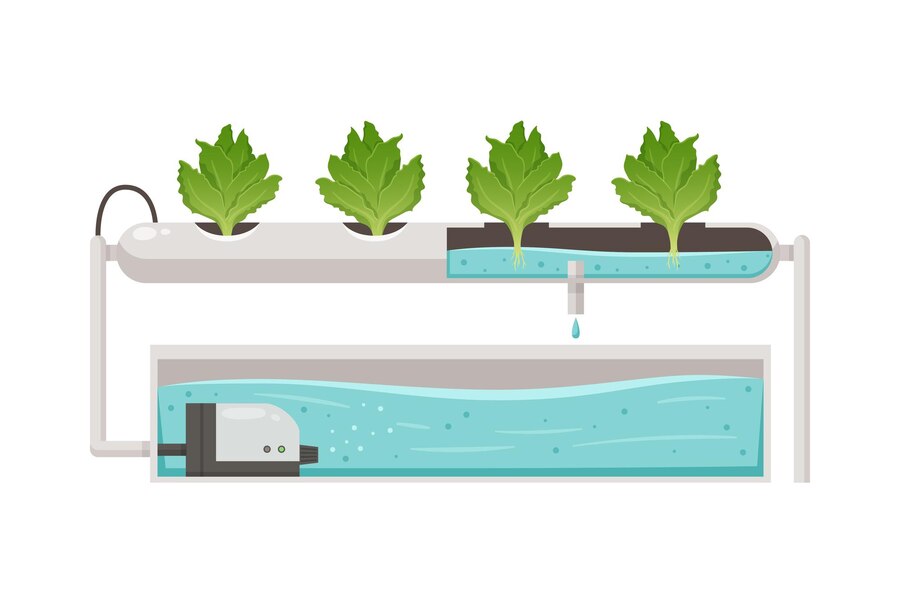
Preventing Mineral Build-up in Hydroponic Systems with RO Water
Preventing mineral build-up in hydroponic systems is crucial for maintaining optimal plant health and maximizing yields. When using reverse osmosis (RO) water in hydroponics, it becomes even more important to manage mineral buildup, as RO water is stripped of minerals and can be more prone to imbalances.
One effective method to prevent mineral build-up is through regular monitoring and maintenance of the nutrient solution. By closely monitoring the electrical conductivity (EC) and pH levels, gardeners can ensure that the nutrient solution remains within the desired range for plant uptake. Regular adjustments and additions of water-soluble fertilizers can help replenish essential minerals that may be lacking in RO water, preventing deficiencies and maintaining a balanced nutrient solution.
In addition to monitoring the nutrient solution, another key strategy is to implement a proactive approach to system maintenance. Regularly cleaning and flushing the hydroponic system can help remove any excess minerals and debris that may accumulate over time. By regularly cleaning the system, gardeners can prevent clogs, reduce the risk of bacterial growth, and ensure the longevity of their hydroponic setup.
By following these preventive measures, gardeners can help maintain optimal plant health and productivity in hydroponic systems using RO water. The careful monitoring of the nutrient solution and diligent system maintenance are essential in preventing mineral build-up and ensuring successful hydroponic cultivation.
• Regularly monitor the electrical conductivity (EC) and pH levels of the nutrient solution
• Make adjustments and additions of water-soluble fertilizers to replenish essential minerals
• Implement a proactive approach to system maintenance by regularly cleaning and flushing the hydroponic system
• Remove excess minerals and debris that may accumulate over time
• Prevent clogs, reduce bacterial growth, and ensure longevity of the hydroponic setup.
Enhancing Nutrient Uptake in Plants through RO Water
RO water plays a crucial role in enhancing nutrient uptake in plants within hydroponic systems. By using reverse osmosis, impurities such as minerals, chemicals, and pollutants are removed from the water, resulting in a cleaner and purer nutrient solution for plant growth. This purified water contains the essential minerals and nutrients that plants need to thrive, allowing for optimal absorption and utilization.
Studies have shown that plants grown with RO water exhibit enhanced nutrient uptake compared to those grown with tap water or water from other sources. The absence of impurities in RO water reduces the risk of nutrient imbalances and mineral buildup, which can hinder the absorption and uptake of essential nutrients. As a result, plants grown with RO water are more likely to have improved growth rates, increased biomass, and enhanced overall health.
Furthermore, the absence of contaminants in RO water minimizes the risk of nutrient deficiencies or toxicities caused by excessive levels of certain elements. This allows for better control over the nutrient solution, ensuring that plants receive the precise amount and balance of nutrients required for optimal growth and development. Additionally, the use of RO water decreases the need for frequent flushing or maintenance to remove excess minerals, saving both time and resources for hydroponic growers.
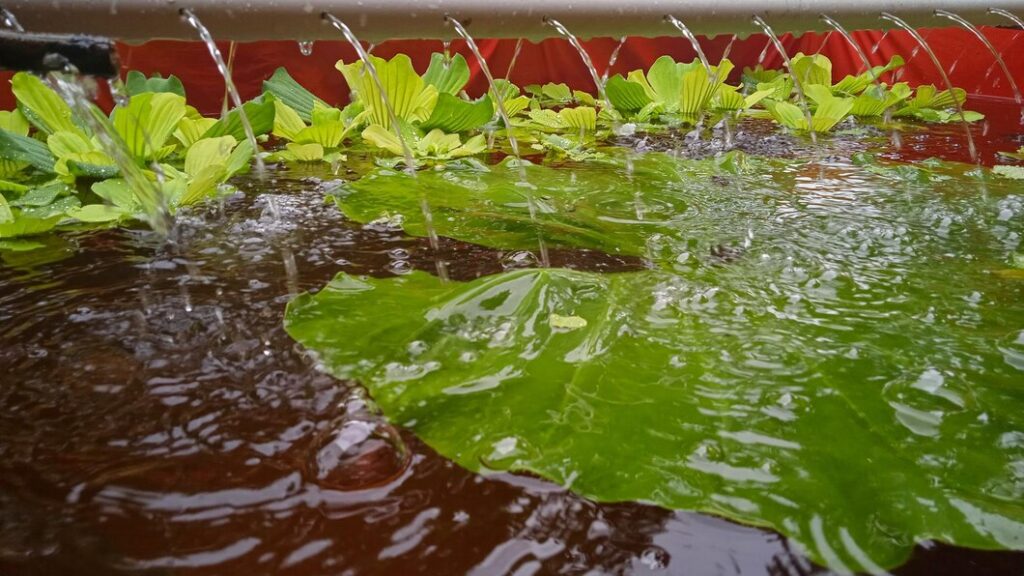
In the next section, we will explore how RO water can also contribute to maximizing yield and quality in hydroponics, as well as address common concerns and challenges associated with its usage.
• RO water removes impurities such as minerals, chemicals, and pollutants from the water, resulting in a cleaner nutrient solution for plants.
• Plants grown with RO water exhibit enhanced nutrient uptake compared to those grown with tap water or other sources.
• The absence of impurities in RO water reduces the risk of nutrient imbalances and mineral buildup.
• Plants grown with RO water are more likely to have improved growth rates, increased biomass, and enhanced overall health.
• The absence of contaminants in RO water minimizes the risk of nutrient deficiencies or toxicities caused by excessive levels of certain elements.
• Better control over the nutrient solution ensures that plants receive the precise amount and balance of nutrients required for optimal growth and development.
• The use of RO water decreases the need for frequent flushing or maintenance to remove excess minerals, saving time and resources for hydroponic growers.
Maximizing Yield and Quality with RO Water in Hydroponics
The use of reverse osmosis (RO) water in hydroponics offers tremendous benefits when it comes to maximizing yield and quality. By removing impurities and balancing pH levels, RO water provides plants with the cleanest and most ideal growing conditions, allowing them to reach their full potential.
One of the primary advantages of using RO water in hydroponics is its ability to enhance nutrient uptake in plants. With its pure composition, RO water ensures that plants receive the precise balance and concentration of nutrients required for optimal growth. This leads to improved nutrient absorption and utilization, resulting in healthier plants with stronger root systems and increased yields. Additionally, using RO water eliminates the risk of contamination from heavy metals, chlorine, and other harmful substances that can hinder plant growth and compromise crop quality.
• RO water removes impurities and balances pH levels, creating ideal growing conditions for plants
• Enhances nutrient uptake in plants by providing a pure composition with precise balance and concentration of nutrients
• Improves nutrient absorption and utilization, leading to healthier plants with stronger root systems
• Eliminates the risk of contamination from heavy metals, chlorine, and other harmful substances that can hinder plant growth
• Ensures maximum yield and quality by allowing plants to reach their full potential
Addressing Common Concerns about Using RO Water in Hydroponic Systems
Addressing Common Concerns about Using RO Water in Hydroponic Systems
When it comes to hydroponics, there are often concerns raised about the use of reverse osmosis (RO) water. Some gardeners worry that RO water may lack essential minerals and nutrients, potentially affecting plant growth and yield. However, it is important to dispel these concerns and understand the benefits of using RO water in hydroponics.
One common concern is that RO water may not provide the necessary minerals for plant growth. While it is true that RO systems remove most minerals from the water, it is crucial to remember that hydroponic systems rely on nutrient solutions to provide the essential elements for plants. These nutrient solutions are specifically formulated to meet plants’ needs, ensuring optimal growth and development. By using a properly balanced nutrient solution, gardeners can compensate for any mineral deficiencies in RO water, giving plants the necessary nutrients they require.
Another concern is the potential negative impact of RO water on pH levels. It is true that RO water tends to have a neutral pH, which may not match the preferred pH range for certain plants. However, this can be easily addressed by adjusting the pH of the nutrient solution. By monitoring and adjusting the pH levels, gardeners can ensure that plants receive the ideal environment for nutrient absorption and overall health.
It is important to note that RO water offers several advantages for hydroponic systems. As RO systems remove impurities and contaminants from water, it helps maintain a clean and sterile environment for plants. This prevents the risk of disease and ensures that plants can receive the nutrients without any interference from unwanted substances. Additionally, RO water helps prevent mineral build-up in hydroponic systems, reducing the risk of clogged pipes and ensuring the longevity of the equipment.
In conclusion, while there may be concerns about using RO water in hydroponic systems, these concerns can be effectively addressed. By utilizing properly balanced nutrient solutions and adjusting pH levels, gardeners can maximize the benefits of RO water while meeting plants’ nutritional needs. With its ability to remove impurities and prevent mineral build-up, RO water is a valuable asset in hydroponic gardening, promoting healthier plants and higher yields.
• RO water may lack essential minerals and nutrients, but nutrient solutions can compensate for any deficiencies.
• pH levels in RO water can be adjusted by monitoring and adjusting the pH of the nutrient solution.
• RO water helps maintain a clean and sterile environment for plants, preventing disease.
• It also prevents mineral build-up in hydroponic systems, reducing the risk of clogged pipes.
• By utilizing properly balanced nutrient solutions and adjusting pH levels, gardeners can maximize the benefits of RO water.
Overcoming Challenges: RO Water and Nutrient Imbalances in Hydroponics
Overcoming challenges in hydroponics is an essential aspect of maintaining a balanced and productive system. When it comes to using reverse osmosis (RO) water, nutrient imbalances can arise and hinder plant growth. One of the main challenges faced is the depletion of essential minerals in the water.
RO systems are highly efficient in removing impurities, but they can also strip away beneficial minerals needed by plants. This can result in deficiencies that manifest as stunted growth, yellowing leaves, and reduced yields. To overcome this challenge, it is vital to supplement the RO water with a nutrient solution tailored to the specific needs of the plants being grown. Regular monitoring of the nutrient levels and adjusting the solution accordingly can help ensure that plants receive the necessary elements for optimal growth.
Another challenge to address is the potential for nutrient imbalances caused by incorrect pH levels in RO water. RO water tends to be more neutral or slightly acidic, which can affect the pH of the nutrient solution. Ideally, hydroponic systems thrive in a slightly acidic to neutral pH range, typically around 5.5 to 6.5. Monitoring and adjusting the pH levels regularly, using pH-balancing products or additives, can help mitigate nutrient imbalances caused by RO water and maintain a favorable environment for plant growth.

By overcoming these challenges and implementing proper strategies, it is possible to harness the benefits of RO water in hydroponics while still maintaining optimal nutrient levels. Through careful monitoring, supplementation, and adjustment of pH levels, hydroponic enthusiasts can ensure the well-being and productivity of their plants, resulting in bountiful harvests and successful hydroponic systems.
• Supplement the RO water with a nutrient solution tailored to the specific needs of the plants
• Regularly monitor and adjust the nutrient levels in the solution
• Address potential nutrient imbalances caused by incorrect pH levels in RO water
• Maintain a slightly acidic to neutral pH range for optimal plant growth
• Use pH-balancing products or additives to regulate and stabilize pH levels
Pro Tips for Optimal RO Water Usage in Hydroponics
When it comes to maximizing the benefits of using reverse osmosis (RO) water in hydroponics, there are a few pro tips that can help ensure optimal usage. One important tip is to regularly monitor the water quality to ensure it meets the desired parameters for hydroponic cultivation. This can be done by testing the pH level, electrical conductivity (EC), and nutrient content of the RO water.
In addition, it is crucial to maintain a balanced nutrient solution when using RO water in hydroponics. RO water has little to no mineral content, so it is necessary to add the appropriate amount of nutrients to the solution to provide the essential elements for plant growth. This can be achieved by using a well-formulated nutrient solution specifically designed for hydroponic systems.
Furthermore, it is recommended to adjust the pH of the nutrient solution to the optimal range for hydroponic crops. RO water tends to have a neutral pH, which may not be suitable for all plants. By using pH-adjusting solutions or additives, the pH can be adjusted to the ideal range, promoting better nutrient absorption and overall plant health.
Another pro tip is to be mindful of water temperature when using RO water in hydroponics. Water that is too cold can slow down plant growth, while water that is too warm can promote the growth of harmful pathogens. Maintaining the water temperature within a suitable range can help optimize plant growth and prevent potential issues.
By following these pro tips for optimal RO water usage in hydroponics, gardeners can ensure that their plants receive the highest quality water and nutrient solution, leading to healthier and more productive crops.
• Regularly monitor the water quality by testing pH level, electrical conductivity (EC), and nutrient content
• Maintain a balanced nutrient solution by adding appropriate amount of nutrients to RO water
• Use a well-formulated nutrient solution specifically designed for hydroponic systems
• Adjust the pH of the nutrient solution to the optimal range for hydroponic crops using pH-adjusting solutions or additives
• Be mindful of water temperature to optimize plant growth and prevent potential issues
Exploring Different RO System Options for Hydroponics
When it comes to choosing the right reverse osmosis (RO) system for your hydroponic system, there are several options available in the market. Each option comes with its own set of features and benefits, allowing you to customize the RO system based on your specific needs and requirements.
One popular option is the standard RO system, which is suitable for small to medium-sized hydroponic setups. These systems typically consist of a sediment filter, a carbon filter, and the RO membrane. They are compact, affordable, and easy to install, making them a great choice for beginner hydroponic gardeners.
If you have a larger hydroponic system or if you have specific water quality concerns, you might consider investing in a high-capacity RO system. These systems have a higher water flow rate and can remove a greater amount of impurities from the water. They often include additional stages of filtration, such as a deionization filter or a UV sterilizer, to ensure the highest level of water purity.
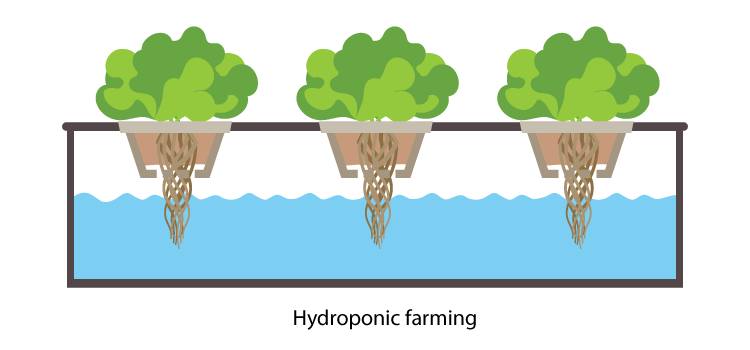
Regardless of the specific RO system you choose, it is important to consider factors such as the size of your hydroponic system, the water quality in your area, and your budget. By exploring different RO system options and carefully analyzing your needs, you can select the system that best suits your hydroponic gardening goals.
• Standard RO systems are suitable for small to medium-sized hydroponic setups.
• They consist of a sediment filter, carbon filter, and RO membrane.
• These systems are compact, affordable, and easy to install.
• They are great for beginner hydroponic gardeners.
• High-capacity RO systems are ideal for larger hydroponic systems or specific water quality concerns.
• These systems have a higher water flow rate and can remove more impurities from the water.
• They often include additional stages of filtration like deionization filters or UV sterilizers.
• This ensures the highest level of water purity in your hydroponic system.
• Consider factors such as the size of your system, water quality in your area, and budget when choosing an RO system.
RO Water vs. Tap Water: Which is Better for Hydroponics?
When it comes to hydroponics, one of the key decisions gardeners face is whether to use tap water or RO water. While tap water is convenient and readily available, RO water offers certain advantages that can significantly benefit the hydroponic system.
Tap water often contains various impurities, such as chlorine, fluoride, heavy metals, and even bacteria. These contaminants can not only hinder the growth of plants but also disrupt the delicate balance of nutrients in the hydroponic solution. On the other hand, RO water goes through a filtration process that effectively removes these impurities, resulting in clean and purified water that is ideal for hydroponics. By using RO water, gardeners can eliminate the risk of harmful substances and create a more controlled and optimized growing environment for their plants.
• Tap water contains impurities such as chlorine, fluoride, heavy metals, and bacteria
• These contaminants can hinder plant growth and disrupt nutrient balance in hydroponic systems
• RO water undergoes a filtration process that removes impurities effectively
• Using RO water eliminates the risk of harmful substances in the hydroponic solution
• RO water creates a more controlled and optimized growing environment for plants
The Role of RO Water in Organic Hydroponics
In organic hydroponics, maintaining water quality is of utmost importance to ensure the health and success of the plants. One essential tool for achieving this is the use of Reverse Osmosis (RO) water. RO water is purified through a filtration process that removes impurities and contaminants, resulting in a high-quality water source for hydroponic systems.
The role of RO water in organic hydroponics is multifaceted. Firstly, it helps to create an optimal growing environment by providing plants with water that is free from harmful substances such as pesticides, heavy metals, and pathogens. By eliminating these potential threats, RO water protects plants from diseases and reduces the risk of toxic elements entering the plant tissue. This is particularly important in organic hydroponics, where the emphasis is placed on cultivating crops without the use of synthetic chemicals.
Moreover, RO water plays a crucial role in maintaining the pH balance within hydroponic systems. The pH level refers to the acidity or alkalinity of the water, and it greatly impacts nutrient uptake by plants. RO water typically has a neutral pH, which provides a stable foundation for precise control over the nutrient solution’s pH. This allows for improved nutrient absorption by the plants, ensuring that they receive the necessary elements for optimal growth and development.
In addition to pH balance, RO water helps prevent mineral build-up within hydroponic systems. Tap water often contains high levels of minerals and dissolved solids, which can accumulate over time and clog the irrigation system. By using RO water, growers can minimize the occurrence of blockages and ensure a smooth flow of water and nutrients throughout the system. This not only improves the efficiency of nutrient delivery but also reduces the need for frequent system maintenance.
By employing RO water in organic hydroponics, gardeners have the potential to enhance both the yield and quality of their crops. The purity and consistency of RO water contribute to the plants’ overall health, leading to vigorous growth, improved root development, and an increased resistance to pests and diseases. Furthermore, the absence of impurities allows the true flavors and aromas of the produce to shine, making them highly desirable among consumers who value organic and high-quality crops. With the optimal water quality provided by RO systems, organic hydroponics can reach new heights in terms of both sustainability and productivity.
• RO water is purified through a filtration process that removes impurities and contaminants, resulting in high-quality water for hydroponic systems.
• RO water helps create an optimal growing environment by providing plants with water free from harmful substances such as pesticides, heavy metals, and pathogens.
• It protects plants from diseases and reduces the risk of toxic elements entering plant tissue.
• RO water maintains the pH balance within hydroponic systems, allowing for improved nutrient absorption by plants.
• It prevents mineral build-up within hydroponic systems, minimizing blockages and ensuring a smooth flow of water and nutrients throughout the system.
• Using RO water in organic hydroponics can enhance both yield and quality of crops.
• The purity and consistency of RO water contribute to overall plant health, leading to vigorous growth, improved root development, and increased resistance to pests and diseases.
• The absence of impurities allows true flavors and aromas of produce to shine.
Certainly! Here’s a table highlighting the role of Reverse Osmosis (RO) water in organic hydroponics:
| Role | Description |
|---|---|
| Nutrient Transport | In hydroponics, water in the nutrient reservoir is modified to carry essential nutrients (such as nitrogen, phosphorus, and potassium) and oxygen. This modification allows it to hold nutrients like soil without drowning the plants due to the dissolved oxygen in the water . |
| Controlled Nutrient Solution | RO water provides precise control over nutrient content. By adjusting the nutrient solution, growers can prevent mineral imbalances and tailor it to meet specific plant needs . |
| pH and EC Regulation | The total dissolved solids (TDS) level of water directly affects the electrical conductivity (EC) and acidity (pH). Ideal conditions for the nutrient solution in the reservoir are approximately 800 TDS, 1.2-2 EC, and a pH range of 5-6.5. RO water with low TDS levels contributes to these optimal growing conditions . |
| Contaminant-Free Medium | Using RO water ensures a contamination-free hydroponic system. It eliminates impurities commonly found in tap water, promoting plant health without harmful substances . |
RO water plays a crucial role in maintaining a healthy and thriving organic hydroponic setup. Its purity, nutrient control, and pH regulation contribute to successful plant growth .
Case Studies: Success Stories of Hydroponic Systems with RO Water
In the realm of hydroponics, numerous success stories have emerged, showcasing the remarkable benefits of using reverse osmosis (RO) water in hydroponic systems. These case studies highlight the positive impact of RO water on plant growth, yield, and overall system performance.
One such success story comes from a hydroponic lettuce farm in California. The farm implemented an RO system to ensure consistent, high-quality water for their hydroponic setup. The results were extraordinary, with the lettuce plants exhibiting vigorous growth and achieving a more vibrant green color. The farm reported a significant increase in yield, with the lettuce heads being consistently larger and healthier compared to when tap water was used. The use of RO water also helped in maintaining the pH balance in the hydroponic solution, ensuring optimal nutrient uptake by the plants and minimizing the risk of nutrient imbalances.
Another success story can be found in a hydroponic tomato cultivation project in the Netherlands. By incorporating an RO system into their hydroponic setup, the growers were able to overcome the challenges posed by poor water quality in their region. The use of RO water not only improved the overall health of the tomato plants but also resulted in higher fruit quality and yield. The growers reported a reduction in the occurrence of nutrient deficiencies and mineral imbalances, leading to more uniform and flavorful tomatoes. Moreover, the absence of impurities and contaminants in the RO water provided the plants with a clean and disease-free environment, minimizing the need for chemical treatments and ensuring a more sustainable approach to cultivation.
These success stories serve as compelling evidence of the positive impact that RO water can have on hydroponic systems. By removing impurities, maintaining pH balance, preventing mineral build-up, and enhancing nutrient uptake, RO water plays a crucial role in maximizing yield and quality in hydroponics. These case studies not only inspire other hydroponic enthusiasts to consider incorporating RO systems into their setups but also highlight the immense potential of RO water in revolutionizing the future of hydroponic cultivation.
• The use of reverse osmosis (RO) water in hydroponic systems has shown remarkable benefits.
• A hydroponic lettuce farm in California implemented an RO system and saw vigorous growth and vibrant green color in their lettuce plants.
• The farm reported a significant increase in yield, with consistently larger and healthier lettuce heads compared to tap water usage.
• RO water helped maintain the pH balance in the hydroponic solution, optimizing nutrient uptake by the plants and minimizing nutrient imbalances.
• In a hydroponic tomato cultivation project in the Netherlands, incorporating an RO system improved overall plant health, fruit quality, and yield.
• Growers experienced reduced occurrences of nutrient deficiencies and mineral imbalances, resulting in more uniform and flavorful tomatoes.
• The absence of impurities and contaminants in RO water provided a clean environment for disease-free cultivation, reducing chemical treatments needed.
• These success stories demonstrate how RO water can enhance hydroponic systems by removing impurities, maintaining pH balance, preventing mineral build-up, and improving nutrient uptake.
• They inspire other enthusiasts to consider using RO systems while highlighting the potential of RO water to revolutionize future hydroponic cultivation.
Looking Ahead: The Future of RO Water in Hydroponics
As hydroponic systems continue to gain popularity and advancements in technology, the future of RO water in hydroponics looks promising. With a growing emphasis on water conservation and sustainable farming practices, the use of RO water is expected to become more widespread in hydroponic cultivation.
One of the key advantages of RO water is its ability to provide a clean and consistent source of water for plants. By removing impurities and contaminants, RO water ensures that plants receive only the necessary nutrients and minerals, without the risk of mineral build-up or pH imbalances. As a result, hydroponic growers can achieve better control over their nutrient solutions, leading to improved plant health and higher crop yields.
Furthermore, the future of RO water in hydroponics holds potential for the development of more efficient and cost-effective systems. With ongoing research and innovation, we can expect to see the emergence of advanced RO technologies that optimize water usage, reduce energy consumption, and enhance the overall sustainability of hydroponic operations. These advancements will not only benefit commercial growers but also enable home gardeners to adopt hydroponic systems with ease and confidence.
In conclusion, as the demand for hydroponically grown produce continues to rise, the future of RO water in hydroponics appears promising. The benefits of clean, purified water in ensuring optimal plant growth and crop production are undeniable. With ongoing advancements in technology and a focus on sustainability, the use of RO water in hydroponics is likely to become more prevalent, paving the way for a greener and more efficient future in indoor farming.
• RO water provides a clean and consistent source of water for plants in hydroponic systems.
• It removes impurities and contaminants, ensuring that plants receive only necessary nutrients and minerals.
• This leads to improved plant health and higher crop yields.
• Ongoing research and innovation are expected to lead to more efficient and cost-effective RO technologies in hydroponics.
• These advancements will optimize water usage, reduce energy consumption, and enhance overall sustainability.
• The future of RO water in hydroponics will benefit both commercial growers and home gardeners.
• As the demand for hydroponically grown produce rises, the use of RO water is likely to become more prevalent.
Please do watch video and know more facts!
Is it necessary to use RO water in hydroponic systems?
While it is not necessary, using RO water in hydroponic systems offers several advantages such as removing impurities and preventing mineral build-up, ultimately enhancing nutrient uptake and maximizing yield and quality.
Can I use tap water instead of RO water in hydroponics?
Tap water can be used in hydroponics, but it may contain impurities that could lead to nutrient imbalances and mineral build-up. Using RO water ensures a cleaner and more consistent water source for optimal plant growth.
Will using RO water affect the pH balance in hydroponic systems?
RO water typically has a neutral pH, which can be beneficial in maintaining a stable pH balance in hydroponic systems. However, it is important to regularly monitor and adjust the pH levels as needed.
How can RO water enhance nutrient uptake in plants?
RO water removes impurities and minerals that may hinder nutrient absorption by plants. By providing a cleaner and purer water source, RO water can enhance nutrient uptake and promote healthier plant growth.
What are the common concerns about using RO water in hydroponics?
Some common concerns include the cost of installing and maintaining RO systems, potential water wastage during the filtration process, and the need for additional mineral supplementation to compensate for the removal of beneficial minerals.
How can nutrient imbalances be overcome when using RO water in hydroponics?
Nutrient imbalances can be addressed by regularly monitoring and adjusting the nutrient solution in hydroponic systems. Conducting regular water and nutrient tests will help ensure the plants receive the necessary elements for optimal growth.
Are there any specific tips for using RO water in hydroponics?
Some pro tips include regularly monitoring pH and nutrient levels, adjusting the nutrient solution accordingly, and using mineral supplements if necessary. Additionally, it is important to properly maintain and clean the RO system to ensure its efficiency.
What are the different options for RO systems in hydroponics?
There are various RO system options available, ranging from small-scale portable units to larger, commercial-grade systems. Choosing the right system depends on the scale and specific needs of your hydroponic setup.
How does RO water contribute to organic hydroponics?
RO water can play an important role in organic hydroponics by providing a clean and uncontaminated water source. It helps maintain the purity of the nutrient solution, which is crucial for organic growing practices.
Are there any success stories of hydroponic systems using RO water?
Yes, there have been numerous success stories of hydroponic systems that have benefited from using RO water. These stories highlight improved plant health, increased yield, and enhanced overall quality of the produce.
What does the future hold for RO water in hydroponics?
The future of RO water in hydroponics looks promising, with ongoing advancements in technology and increased awareness of water quality. It is likely that the demand for RO systems will continue to grow as hydroponics becomes more widespread and efficient.

Nicole Burke is a dynamic writer at SouthElMonteHydroponics, fueled by her passion for horticulture and environmental sustainability. Armed with a degree in Environmental Science from a renowned institution, Nicole’s expertise lies in hydroponic gardening, organic farming, and biodiversity conservation. Her insatiable curiosity and love for nature drive her to explore innovative techniques in hydroponics, seeking to revolutionize the way we grow crops in urban environments. Nicole’s writing reflects her deep commitment to promoting eco-conscious practices and fostering a deeper connection between humans and the natural world. Through her engaging storytelling, she inspires others to embrace sustainable living and harness the power of hydroponics for a greener future.

